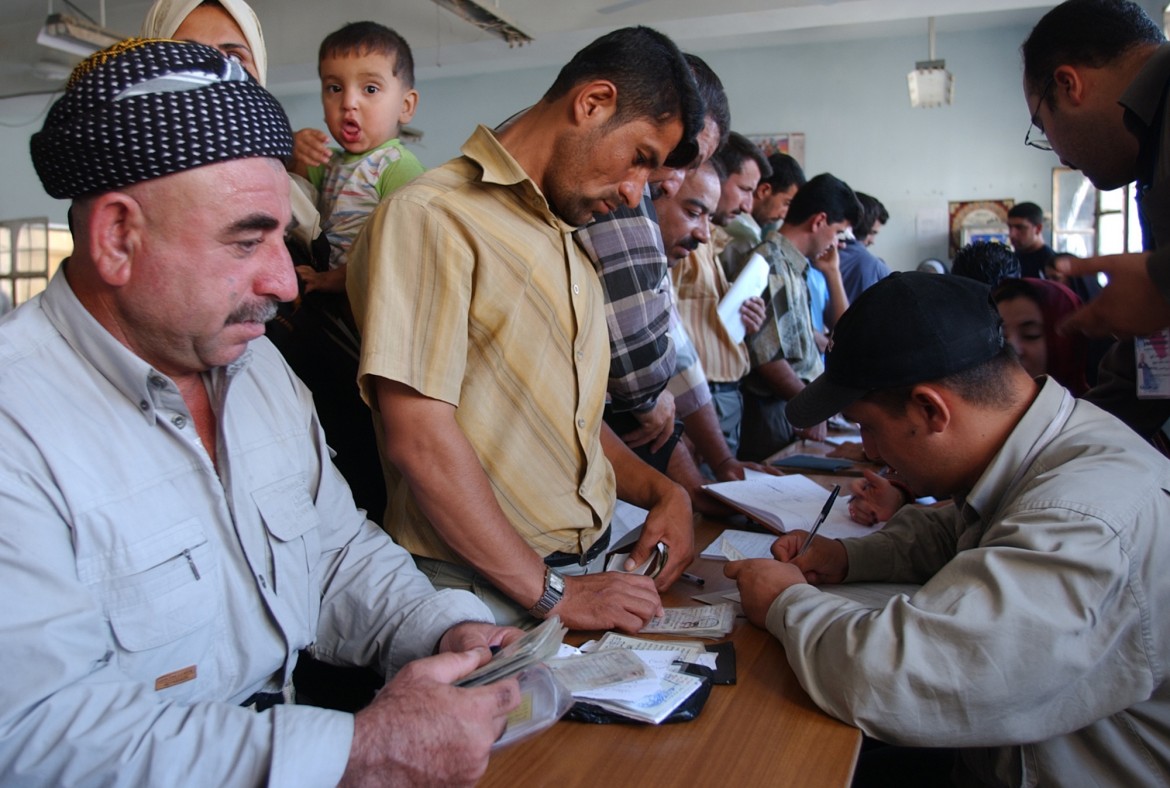Interview
‘If Erbil is isolated, independence will die’
Kamal Chomani, an analyst at Tahrir Institute, told us an invasion of Kurdistan is unnecessary. An embargo by Turkey and Iran would be the end of Erbil.

The big party went on all night. Deaf to the threats of invasion and economic isolation, the Iraqi Kurds enjoyed their time: singing and dancing, distributing candy to the crowd, horns that gave joy a rhythm. They were aware that it may not last.
Waiting for the final results on Tuesday afternoon, the Electoral Commission announced preliminary figures: with a 72 percent turnout, the vote for independence won by 90 percent. In the evening, Kurdistan President Masoud Barzani proclaimed the victory of the Yes in a televised speech.
And just as on the day of the vote, Kurdistan’s neighbors shared their displeasure. They are all opposed to independence and to the advisory referendum that Barzani intends to use to open up new negotiations with Baghdad. However, the central government does not intend to take part in these negotiations.
Iraqi Prime Minister Haider al-Abadi said it clearly on Tuesday: “We will not discuss or talk about the results of the referendum, because it is unconstitutional.” At the same time, joint military operations between Baghdad and Ankara started on the Kurdistan border, and the Iraqi government gave Erbil three days to surrender the control of the two international airports, under threat of an air embargo.
But the Turkish president Recep Tayyip Erdogan was able to better define the possible strategy for the future: close the borders and block imports, exports and the pipeline through which 500,000 barrels of crude oil pass daily, and ultimately starve them out. That is, economic sanctions to bring Erbil back to the fold, under the directives of a country with enormous interests in Iraq, from oil to the presence of the enemy PKK.
The economic blockade is the scariest threat: the inadequacy in domestic production, the dependence on the Baghdad federal budget and Turkish loans to pay salaries ($1.5 billion in credit), and trade with Iran and Turkey is rooted in the idea that Barzani’s step has been more focused on personal survival, in a period of severe internal crisis, than in the interest of the secular Kurdish independence movement.
We talked with Kamal Chomani, Kurdish researcher at the Tahrir Institute for Middle East Policy and Foreign Policy and al-Monitor journalist .
With the referendum, Barzani seems to want to bolster consensus in constant decline, eroded by allegations of corruption and a term that expired in 2015.
Barzani has acted for personal purposes. The economic, political and social crisis, high unemployment, rising emigration, the end of his mandate, the blockade on parliamentary work, the fact that the Parliament speaker (member of the Gorran opposition party) has not been able to travel to Erbil in the last two years… all this has led to a collapse of Barzani’s approval rating. He has found the right thing to make people tolerate his regime.
What financial problems would Erbil face if they secede?
Serious economic problems. Kurdistan survives through federal funds and the central government supplies medicines, foodstuffs and energy. But above all, Iraq is a major source of economic revenue, it is the main market for Kurdish goods and Erbil is the first touristic destination for Iraqis. Without strong industries and economic sectors, a good part of the population lives off tourism, which is predominantly Iraqi, not from abroad.
Is it possible this will spark an intra-Iraqi conflict for the disputed areas?
In the case of actual independence, clashes are likely. Both with Shiite militias and with Sunni Arabs who will never agree to surrender Kirkuk. It is the richest Iraqi city, in terms of energy, and Iraq considers it part of its territory. The issue can only be resolved peacefully and with dialogue, or tensions will erupt. Shiite militias are supported by Iran and will be used by Tehran as a proxy against Kurdish independence. The only solution for Kirkuk is to make it an international city, an independent city that cooperates with Baghdad and Erbil, but is not controlled by any of the two governments.
And the threats of armed intervention from the outside?
I do not think there will be invasions or armed intervention. The Kurdish government is financed by the neighboring states: 95 percent of its crude oil sales pass through the Turkish pipeline. If Ankara stops this flow, it would kill Kurdish independence. Likewise, if Turkey and Iran were to close the borders, a region that imports 85 percent of the goods consumed would collapse. We are not self-sufficient either in agriculture or in industry. Economic sanctions are not only more likely, but also more effective.
Originally published at https://ilmanifesto.it/se-erbil-verra-isolata-lindipendenza-morira/ on 2017-09-27
